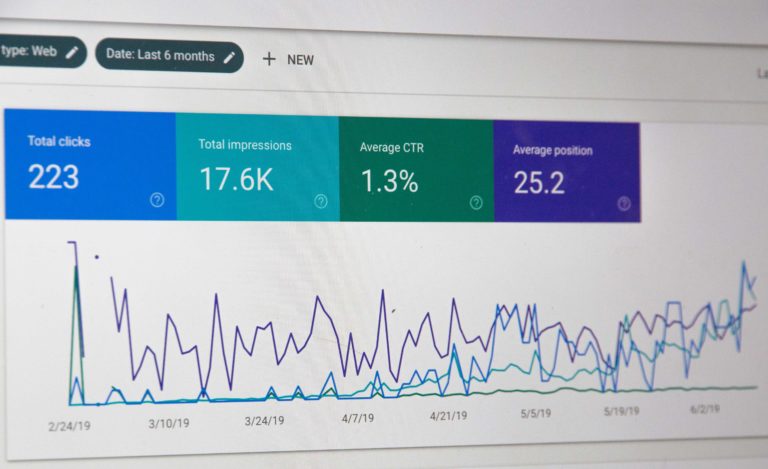What is a Church Website and Why Does a Church Need One?
A church website is an online presence and platform for a church or religious organization. In today’s digital age, a website has become a crucial communication and outreach tool for churches of all sizes. Here are some key reasons why every church needs to have an effective website:
Promote Your Church’s Mission and Values
A church website allows you to share your church’s mission, vision, beliefs, and core values with a broader audience beyond your congregation. Through well-crafted website content, you can clearly communicate what your church stands for to connect with both current and prospective members.
Share Service Times and Event Information
Your website makes it easy for people to find service times, directions to your church, and information about special events or programs. This eliminates a barrier for first-time visitors who may be interested in attending but don’t know the logistics.
Extend Your Reach in the Community
An online presence allows you to promote your church far beyond just printed flyers or word-of-mouth. People looking for a new church home can easily find you and learn more before they visit. You can share ministry updates, sermons, blog posts, and more to engage an online audience.
Build Stronger Connections
With the right website tools, you can foster stronger connections within your church community. Consider adding member directories, small group pages, login portals with exclusive content for members, and more. This helps turn your website into a hub for deeper engagement.
Accept Online Donations
Accepting online giving and tithes greatly simplifies giving for your congregation. You can securely process online donations through church website builders that integrate with church management systems. This gives members more options for supporting the church financially.

Share Your Message with Seekers
People who are questioning, exploring their faith, or thinking about returning to church are likely to visit your website first. Your online content can answer their questions and address concerns to make them feel welcomed and understood.
Showcase Your History and People
Humanize your church by sharing its unique history, photos of current members and events, biographies of pastors and staff, and testimonials from people who love your church. This website content shows visitors your community is vibrant, active, and friendly.
Keep Your Congregation Informed
Use announcements, news updates, calendars, bulletins, and member newsletters to keep your church community in the know. This improves church communication and ensures people don’t miss important happenings.
Provide Helpful Resources
Consider adding resources like sermon recordings, podcasts, spiritual growth eBooks, Bible study materials, prayer request forms, counseling referrals, and more. This makes your website a go-to spiritual resource for your community.
Clearly, having a strategic church website goes far beyond just sharing basic info about your church. It’s a multifaceted tool to achieve your church’s mission and vision online.
How to Create an Effective Church Website
Creating a great church website has gotten much simpler in the past decade. You no longer need advanced technical skills, just smart planning and effort. Here are tips to create a website that effectively engages your congregation and community:
Choose the Right Church Website Platform
Many church-specific website builders and content management systems now exist to streamline the website creation process. Research options like Kleap Tithe.ly, Ministry Brands, Easy Church Site, Weebly, and Wix to compare features and price points. Look for an intuitive dashboard, drag-and-drop site builder, powerful templates, and seamless integration with church management systems.
Pick a Design That Fits Your Church
Start by browsing the template options on your chosen website platform. Look for modern, responsive designs that reflect your church’s personality and style. You can also search these sites for templates designed specifically for different denominations if you want a more customized look and feel.
Make Your Website Easy to Navigate
Good navigation is crucial for user-friendly website. Use clear navigation menus and visual queues to direct visitors to important pages. Try minimizing nested submenus. Also, make sure to include a search bar so visitors can quickly find what they need.
Optimize for Mobile Visitors
With people increasingly accessing church websites from their phones and tablets, mobile optimization is a must. Choose a responsive template that automatically adapts for smaller screens. Then test the website on different devices to address any mobile issues.
Write Compelling Website Content
Your website content makes the first impression so take time to get it right. Carefully craft your homepage, About page, faith statements, event descriptions, bio sections, and any other website copy. Use a conversational, welcoming tone and explain what makes your church meaningful to you.
Show Off Your Church Community
Upload plenty of high-quality photos showing genuine moments of community and connection. Feature photos of worship services, events, ministries, classes, small groups, volunteers, church leaders, and congregants of all ages. This visual content makes your church come to life.
Promote Upcoming Events and News
Keep visitors informed and engaged by promoting special events and announcements prominently on your homepage and other key pages. Display visually rich calendars, eye-catching banners and buttons, scannable bulletins, and clear calls to action to get involved.
Integrate Online Giving Options
Choosing a website platform that allows for secure online donations and streamlines giving will increase contributions. Clearly promote online giving features and consider options like one-time and recurring donations, campaign gifts, special offerings, and text-to-give.
Optimize for SEO
Use relevant keywords related to your church’s location, denomination, services, events, beliefs, and programs throughout your website content. This search engine optimization (SEO) helps your site rank higher in search results so more people find you.
Creating and maintaining an exceptional church website does take effort. But the ability to share your church’s mission and positively impact your community is well worth the time investment. Approach your church website as an ongoing outreach ministry and update it frequently to keep visitors engaged.
Frequently Asked Question
1. Why does our church need a website?
A church website serves as a digital presence for your congregation, making it easier for people to find and connect with your church online. It provides a platform to share information, updates, and resources with both members and newcomers.
2. How can a website benefit our church community?
A website can help strengthen your church community by providing a central hub for communication, event updates, and online resources. It can also facilitate outreach and engagement with members and potential visitors.
3. What information should we include on our church website?
Important content to include:
- Service times and locations
- About us: Church history, mission, and values
- Contact information
- Event calendar
- Sermons and teachings
- Online giving options
- News and announcements
4. Do we need to hire a professional to build our church website?
While it’s possible to create a basic website using user-friendly website builders, hiring a professional web developer or designer can help ensure a polished and functional site. It depends on your budget and the complexity of your needs.
5. How can we make our website user-friendly for all age groups?
- Ensure that the website has a simple and intuitive navigation menu.
- Use clear and large fonts for easy readability.
- Include both written and visual content to cater to various preferences.
- Make sure the website is mobile-responsive for smartphone users.
6. Can we integrate online donations on our website?
Yes, you can integrate online donation platforms to make it easy for members to give securely through your website. This can be a significant source of financial support for your church.
7. What about security and privacy concerns for our church website?
It’s crucial to prioritize website security and protect any personal or financial information. Regularly update your website software and use secure hosting options with SSL certificates to encrypt data.
8. How can we reach a wider audience through our website?
- Utilize social media integration to share content and events.
- Optimize your website for search engines (SEO) to increase visibility.
- Consider creating a blog or sharing inspirational content to attract a broader audience.
9. How can we maintain our website over time?
Assign a responsible person or team to update and maintain the website regularly. This includes adding fresh content, fixing broken links, and ensuring all information is up to date.
10. How do we get started with creating a church website?
Start by defining your goals and budget. – Select a domain name and hosting provider. – Plan the website’s structure and content. – Choose a web development approach (DIY, professional help, or website builder). – Begin designing and populating your website with content.
Conclusion
Having a website for your church is no longer just a modern convenience; it’s become an essential tool for connecting with your congregation and reaching a wider community. A well-designed church website serves as a welcoming digital gateway, providing information, fostering community, and extending your ministry beyond the physical walls of your church building.
Through your website, you can share your church’s mission, service times, and resources with clarity and accessibility. You can engage with members, both young and old, in a way that suits their preferences and busy lifestyles. Furthermore, by embracing online donations and social media integration, you can enhance financial support and broaden your reach.
In today’s digital age, a church website isn’t just a technical asset—it’s a powerful instrument for spreading the message of faith, fostering fellowship, and ensuring your church remains an active and vital part of the lives of those you serve. So, if you haven’t already, consider taking the step to create a website for your church, and open the doors to a world of possibilities for your congregation and your mission.














